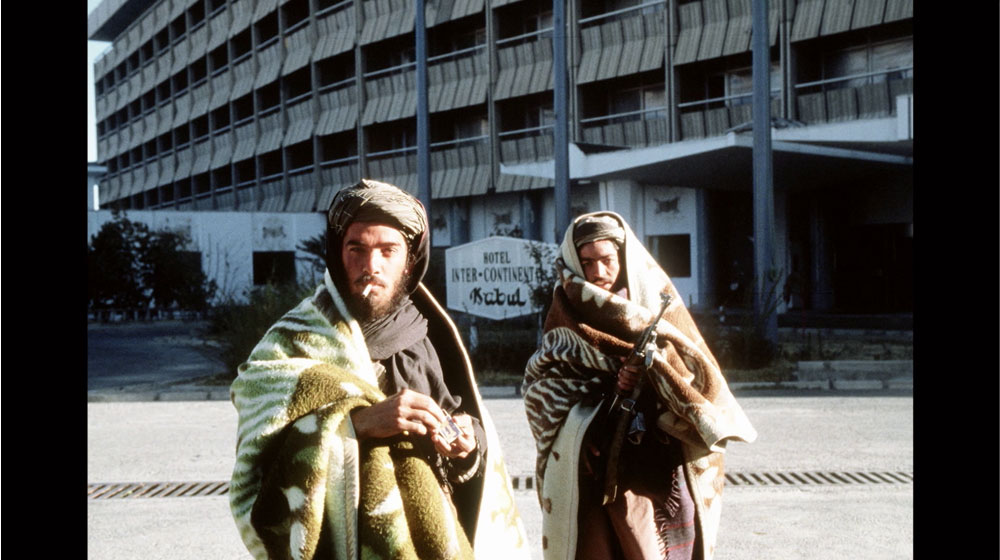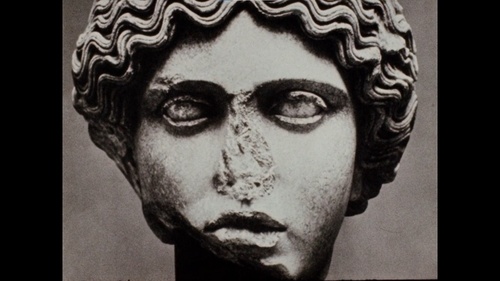Afghanistan, what now?
Keys to understanding the country's future
Audiovisuals + Debate
Free with pre-booking
A round table and screening, showing episode 3, "Talibans", of the documentary series Afghanistan, the wounded land (Looks, 2020). This German series by the public broadcaster NDR/ARTE, in cooperation with Al Jazeera, tells the story of the last forty years of war in Afghanistan in four episodes. With exceptional, unique archive footage and touching characters, it's an essential series to really understand what's happening in this country that's as beautiful and turbulent as it is exotic.
After the documentary there'll be a discussion with co-directors Mayte Carrasco and Marcel Mettelsiefen, Shukria Barakzai, former Ambassador of Afghanistan today in exile in Britain, Pere Vilanova, Professor of Political Science at the University of Barcelona, and Agus Morales, director of the magazine 5W.
The fate of the Afghans is taking a tragic turn and is doing so at a speed directly proportional to the loss of interest by world opinion. Neither the media nor governments deemed the "Afghan" situation to be urgent in September. Kabul and its demonstrations carried out by brave women have scarcely made the news, while the Taliban leaders and their radical Islamic Emirate are gradually being forgotten, victims of the "same old headlines". Seventy percent of journalists have fled abroad and press freedom is now a fleeting memory, a bygone privilege of the twenty years of "Western" tutelage. The wave of repression, and consequent terror, has begun. Four women activists and human rights defenders have been murdered in the north of the country, a fact that has millions of women and men on tenterhooks, people who had collaborated for twenty years with the government of Hamid Karzai or Ashraf Ghani and are now in hiding or fleeing from one side of the country to the other.
Daesh terrorism is even more present than ever in the country, indiscriminately killing hundreds of people in car bomb attacks, while the region runs the risk of becoming another hotbed of radicalism, as it was in the 1990s. The population's only hope is to flee. According to the UN, 23 million Afghans, more than half the population, will go hungry while nine million could die of starvation, with children being the hardest hit. There's no cash and no possibility of withdrawing any from the bank, where there are long queues. The international community has not yet recognised the Islamic Emirate of Afghanistan and the international funds that were supposed to help the country's fragile economy have yet to arrive. In the meantime, the whole world is taking in merely a trickle of the Afghan immigrants fleeing the country, while the US and European Union (EU) are negotiating with the Taliban on how to sort out this complex issue which is so difficult to resolve.
Episode “Talibans”, of the series Afghanistan, the wounded land, Mayte Carrasco and Marcel Mettelsiefen, Germany, 2020, 52 min, Spanish
The complete documentary series, which consists of four episodes, can be viewed on RTVE Play.
With the collaboration of the Consulate General of Germany in Barcelona and the magazine 5W.
Moderators: Mayte Carrasco
Participants: Marcel Mettelsiefen, Shukria Barakzai, Pere Vilanova, Agus Morales
Directors: Mayte Carrasco, Marcel Mettelsiefen






